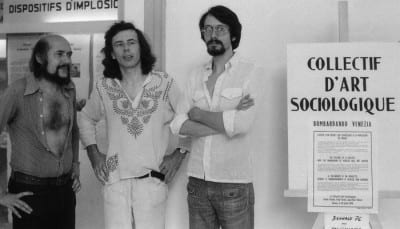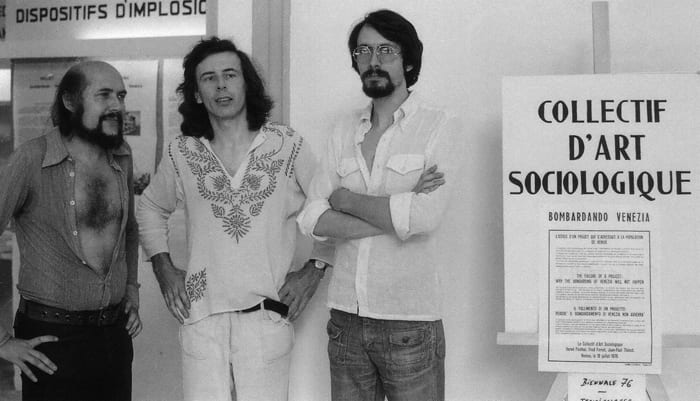
The European Postwar and Contemporary Art Forum (EPCAF) was created in 2010 as a worldwide forum for scholars working on both postwar European and contemporary art. Since then, EPCAF has organized numerous conferences and panels in the United States and Europe, most notably at the Festival d’histoire de l’art in Fontainebleau, France, and the annual College Art Association conference.
For the 2016 CAA conference in Washington, DC, Lily Woodruff and Daniel Quiles have organized a panel titled “Politics of the Performing Eye: Kinetic Art, Op Art and Geometric Abstraction in a Trans-national Perspective.” The panel seeks to deepen our historical understanding of op and kinetic art by situating them within the theoretical and political contexts in which they developed.
In order to further its mission—to make the history of European art accessible to a wider audience—EPCAF is launching a new book series in partnership with the AC Institute in New York (http://acinstitute.org), which will include translations into English, monographs, edited volumes, and anthologies of original documents. This initiative will provide scholars working in this rather heterogeneous field with a platform to develop exciting projects that will showcase the diversity of European artistic practices since 1945 and the wealth of new scholarship being produced on postwar European art.
The first EPCAF books will be published this year. The books will include a volume on the visual arts in France after 1945, edited by Catherine Dossin, which will bring together an international team of scholars, using different methodologies, to address a wide range of artistic practices over seven decades. Another forthcoming publication is the first book in English on the Sociological Art Collective. Editors Maud Jacquin and Stephanie Jeanjean are compiling new contextual and analytical essays and collecting a wide range of primary sources, along with rare visual documentation of the Collective’s actions from the artists’ archives, most of which have never been published nor translated into English before.
By sharing information and exchanging ideas across the globe, EPCAF is expanding our knowledge and understanding of the history of art and criticism, and highlighting the different national methodologies that are brought to bear on these histories.
– Catherine Dossin, on behalf of European Postwar and Contemporary Art Forum
For more information on European Postwar and Contemporary Art Forum, visit http://epcaf.org.

